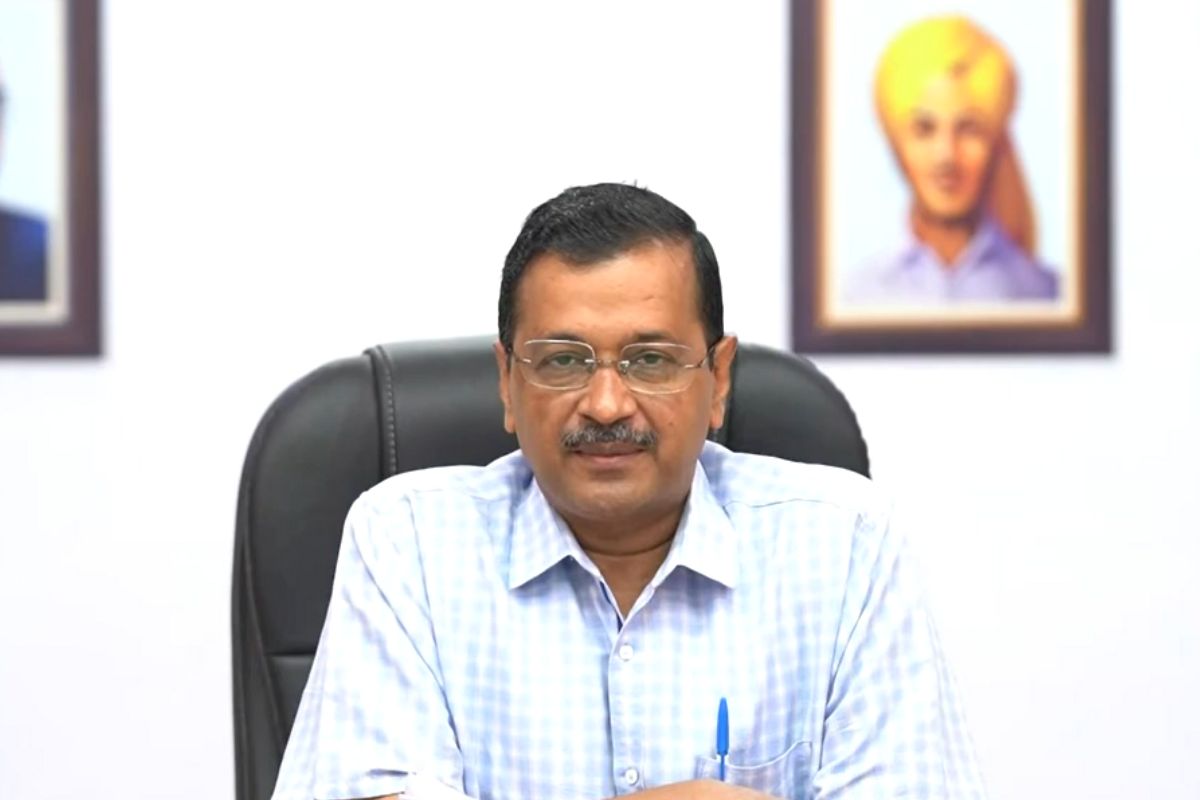Hate speech: BJP leader George seeks time to appear before police
George on Saturday requested the police for an extension until February 24 to appear before them for investigation in connection with the case.
AAP has seen many ups and downs. It is the only national party other than the Congress which rules two states – Delhi and Punjab. It won two seats, a 6.3 per cent vote share in Goa, and five seats in Gujarat last year.

Kejriwal announces street vendors survey to provide them better work conditions
In politics, there are no permanent friends or enemies. A decade after launching his Aam Aadmi Party, Delhi chief minister Arvind Kejriwal is now searching for political friends, realising that it may be challenging to take on the BJP without the backing of other parties.
AAP has seen many ups and downs. It is the only national party other than the Congress which rules two states – Delhi and Punjab. It won two seats, a 6.3 per cent vote share in Goa, and five seats in Gujarat last year.
Advertisement
The party has one seat in the Lok Sabha and ten in the Upper House. No one accuses Kejriwal of a lack of ambition. The AAP came from the India Against Corruption movement in November 2012. It captured power in Delhi, decimating the Congress in 2013, 2017 and 2020. It expanded to other states and gained national party status in April 2023.
Advertisement
The AAP is now projecting itself as an alternative to the BJP. Kejriwal genuinely perceives himself as a future Prime Minister. Did he not contest against Prime Minister Narendra Modi from Varanasi in 2014 and get over two lakh votes?
The AAP has no significant ideological position like the BJP or the Left parties. Unlike the AIADMK, DMK (Dravidian ideology), the Samajwadi Party, Biju Janata Dal or Rashtriya Janata Dal (socialist background), it has come to power on the development mantra and the freebie culture. But of late, things are going wrong.
AAP’s isolation dawned on Kejriwal after his Deputy chief minister Manish Sisodia’s arrest some time ago. Sisodia was his trusted aide and the second most important person in the party. Added to that were the corruption charges against another minister, Satyendar Jain, and party communications chief, Vijay Nair.
Numerous others are also being investigated for alleged corruption. AAP worries that the excise policy investigation may reach Kejriwal’s door. Kejriwal had kept an equal distance from Congress and BJP like other chief ministers like Biju Janata Dal chief Naveen Patnaik and Telangana chief minister K. Chandrashekhar Rao.
But now, with the binding glue of a common enemy (BJP), political equations have changed. In pursuit of new friends, Kejriwal has sought support from Mamata Banerjee, Uddhav Thackery, M.K.Stalin and other regional leaders to counter the Centre. Kejriwal was known for wild allegations against many parties and their leaders, including the Congress.
He has been critical of Sonia Gandhi and Rahul Gandhi. But out of necessity, now he is ready to accept that without Congress, there cannot be a national coalition against Modi. He says, “it is not a battle of either Rahul Gandhi or Congress; it is the fight to save the country from an illiterate, dictatorial, and egoistic person.”
Kejriwal has been knocking at every door for political allies. He shared the dias with Shiv Sena chief Uddhav Thackeray and Bihar chief minister Nitish Kumar. He met West Bengal chief minister Mamata Banerjee. Kejriwal has now realized that finding political friends is a game of give and take. Kejriwal has also changed his strategy.
Kejriwal tries to make friends with those whom he once called ‘thieves’. He was the first to support Rahul Gandhi when the latter was disqualified. He stood firm with the Congress-led Opposition to demand a Joint Parliament Committee probe into the Adani empire. He questioned Modi’s educational qualifications and made fun of him in the Assembly.
He called Modi the least educated among all India’s prime ministers and the most corrupt. The AAP chief knows it is time to give his party a new ideology and go beyond corruption. His welfare politics might take him closer to the socialists, but he is also for soft Hindutva. Secondly, he needs a second rung of leadership.
All those who founded the party with him, like Prashant Bhushan, Asutosh, and Yogendra Yadav, have left because of Kejriwal’s dictatorial tendencies. The party needs to attract new talent. Thirdly, Kejriwal wants to drum up support against the recent Central ordinance seeking to negate the Supreme Court order handing over administrative control of services to the elected government of Delhi.
To his surprise, some non-BJP chief ministers like Mamata Banerjee and M.K Stalin had been quite responsive. Last, Kejriwal is trying to find a balance between his ambitious national expansion plans and how to become a part of the anti-BJP coalition.
The AAP chief has yet to be entirely accepted by the Opposition block. There is a clash of interests in some states like Delhi and Gujarat. Lok Sabha elections are just a few months away. Unity is a strength, and the AAP chief has realised it the hard way.
The moral of the Kejriwal story is that it is not isolation in politics, but finding good friends that is essential. Like Sharad Pawar, who has friends in
Advertisement